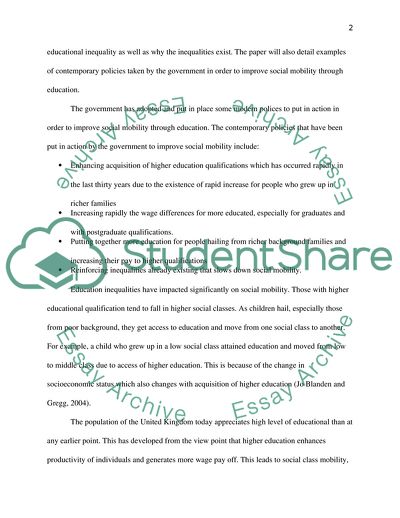Cite this document
(How Educational Inequality Affect Social Class Mobility in the UK Report Example | Topics and Well Written Essays - 2000 words, n.d.)
How Educational Inequality Affect Social Class Mobility in the UK Report Example | Topics and Well Written Essays - 2000 words. https://studentshare.org/education/1794945-educational-inequality-and-social-class-mobility-in-uk
How Educational Inequality Affect Social Class Mobility in the UK Report Example | Topics and Well Written Essays - 2000 words. https://studentshare.org/education/1794945-educational-inequality-and-social-class-mobility-in-uk
(How Educational Inequality Affect Social Class Mobility in the UK Report Example | Topics and Well Written Essays - 2000 Words)
How Educational Inequality Affect Social Class Mobility in the UK Report Example | Topics and Well Written Essays - 2000 Words. https://studentshare.org/education/1794945-educational-inequality-and-social-class-mobility-in-uk.
How Educational Inequality Affect Social Class Mobility in the UK Report Example | Topics and Well Written Essays - 2000 Words. https://studentshare.org/education/1794945-educational-inequality-and-social-class-mobility-in-uk.
“How Educational Inequality Affect Social Class Mobility in the UK Report Example | Topics and Well Written Essays - 2000 Words”. https://studentshare.org/education/1794945-educational-inequality-and-social-class-mobility-in-uk.


